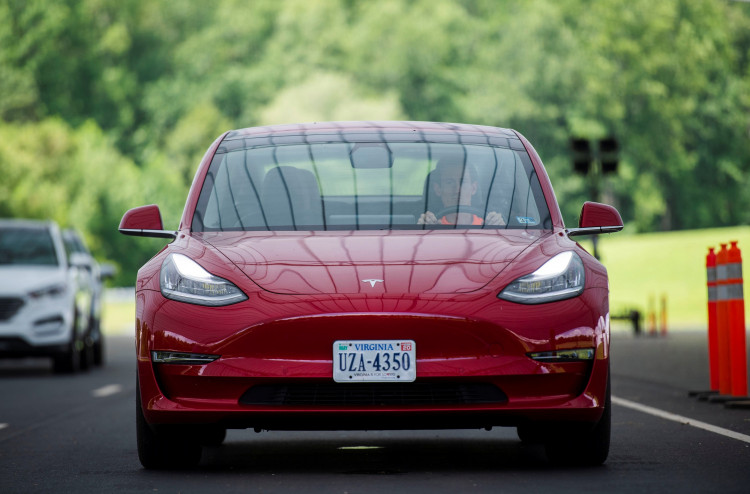A Model 3 recently crashed into a pole proving the fire-resistant capabilities of Tesla's batteries. The violent impact of the high-speed accident caused major damage to the car and its two battery modules, but none of its 2170 cells burst into flames.
Recently, u/Yaro_S, who rebuilds Tesla cars, shared insights from the Model 3 crash at the r/TeslaMotors. According to the electric car enthusiast, they didn't expect the damage to the vehicle to be as serious as it was. The damage on the Model 3 gar suggests that it hit a pole at high speed causing it's front electric motor to move into the driver side's footwell and a puncture in its battery pack.
The images of the dismantled car showed that the crash inflicted damage on the car's two battery modules. The Model 3 rebuilder was surprised to see that none of the battery cells caught fire despite the heavy damage from the car crash. Reports said that one of the cells showed some indication that it got to a very hot temperature until it started melting instead of burning.
The damage to the car's battery pack was the worst that the rebuilder has experienced in all his projects. It even exceeded his last project that involves a puncture at the bottom of the battery pack. According to the r/TeslaMotors subreddit community member, he came away extremely impressed at the fire-resistant capabilities of Tesla's batteries.
Battery technology is the backbone of Tesla's entire business. It is used in almost every service of the company from its electric cars to its energy storage products including its recent Megapack. Automotive President Jerome Guillen mentioned in an interview that the design of Tesla's battery cells is always in the improvement process. The president said that the design of the cell is not frozen. Adding that it evolves, and we have a nice roadmap of technology improvements for the coming years.
The company's recently published patents teased enthusiasts about the improvements to its batteries. Last July, the company published a patent involving a system that allows the company to isolate the damage caused by failed cells to specific sections of a battery pack. The system also allows Tesla to save the integrity of undamaged functional battery cells.
Recently, the Australian New Car Assessment Program (ANCAP) announced that Model 3 received a perfect 5-Star ANCAP safety rating for its excellent performance in the areas of occupant protection and active collision avoidance.






